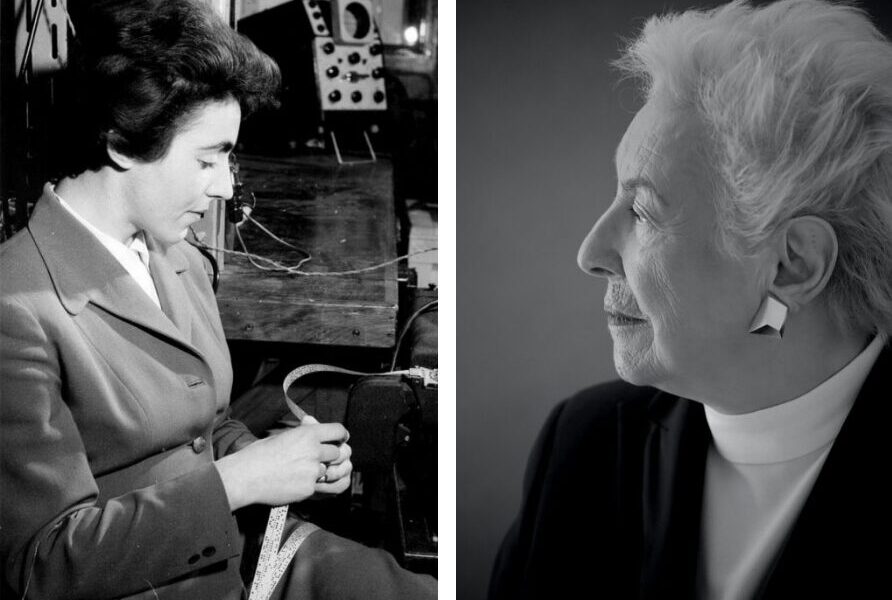Main images courtesy of Dame Stephanie’s website steveshirley.com
Information technology pioneer, entrepreneur and philanthropist Dame Stephanie Shirley CH aka Steve Shirley died on Saturday 9 August at the age of 91 following a short illness.
Born Vera Buchthal in 1933 in Dortmund, Nazi Germany she was the daughter of a Jewish judge and was sent to England in 1939 as a Kindertransport child refugee along with her nine-year-old sister Renate. The sisters were raised in the West Midlands by foster parents and in 1951 Dame Stephanie became a British citizen and changed her name to Stephanie Brook.
Dame Stephanie was interviewed by Archives of IT in February 2017 and said that in the late 1950s her career began at the GPO Research Station at Dollis Hill building computers from scratch and writing code in machine language. While she was working at the post office she took evening classes for six years to obtain an honours degree in mathematics.
At the post office she worked on ERNIE, which was the special purpose computer used to generate the Premium Bonds winning numbers. From being a Scientific Assistant earning £215 a year, she was promoted to the next grade – Assistant Experimental Officer but the pay depended on grade, age and gender, with women on a much lower rate than men. It was at the post office that she met her husband Derek who she married in 1959. In that same year she got a job at CDL Ltd, designers of the ICT 1301 computer.
Establishing Freelance Programmers
Then in 1962, frustrated with the low expectations and opportunities, inequality and sexism, Dame Stephanie founded software company Freelance Programmers with a capital of just £6. She made it explicit that this was an organisation that would create job opportunities for women with children who could work from home.
When pitching for commissions she would constantly be rebuffed or ignored by the industry until, at her husband’s suggestion, she began signing off letters as ‘Steve’ Shirley which was her pet family name.
“I was the first woman ‘this’, the only woman ‘that’ and opened the door for many women, especially in high tech,” she said. “I led a team into a sustainable organisation employing eight and a half thousand people.” By 2000 the company was valued at almost £3 billion and due to Dame Stephanie’s co-ownership structure, had made millionaires of more than 70 of its staff.
Breaking glass ceilings
Throughout her career she would break glass ceilings and fight sexism in the IT industry and said her drive to launch organisations came from the justification she felt compelled to make having being saved when a million other children had died. “As a young child I was told, ‘Aren’t you lucky to be saved’ so I decided to make my life worth saving and I like to feel that I have made a difference and my work gives purpose to my existence.”
In 1984 the Engineering Council recognised the British Computing Society as a chartered body and she became a systems engineer.
Philanthropy
Dame Stephanie said she was determined that some of her wealth should go back to the IT industry and in 1998 she supported The Worshipful Company of Information Technologists to acquire a permanent location in central London. And then in 2001 she became a founding donor of the Oxford Internet Institute and was elected as one of the less than 20% of women Fellows of the Royal Academy of Engineering.
Dame Stephanie also founded three charities: Autism at Kingwood, Autistica and Prior’s Court Foundation. She said her late son Giles was severely autistic and had been the inspiration behind her philanthropic work.
In 2009, Dame Stephanie became the UK’s first government appointed Ambassador for Philanthropy, with the aim of encouraging a broader culture of giving within the UK and beyond.
She was recognised for her major contributions to IT over a long period of time in 2017 when she was awarded a Member of the Order of the Companions of Honour having previously been awarded the Dame Commander of the Order of the British Empire in 2000.
